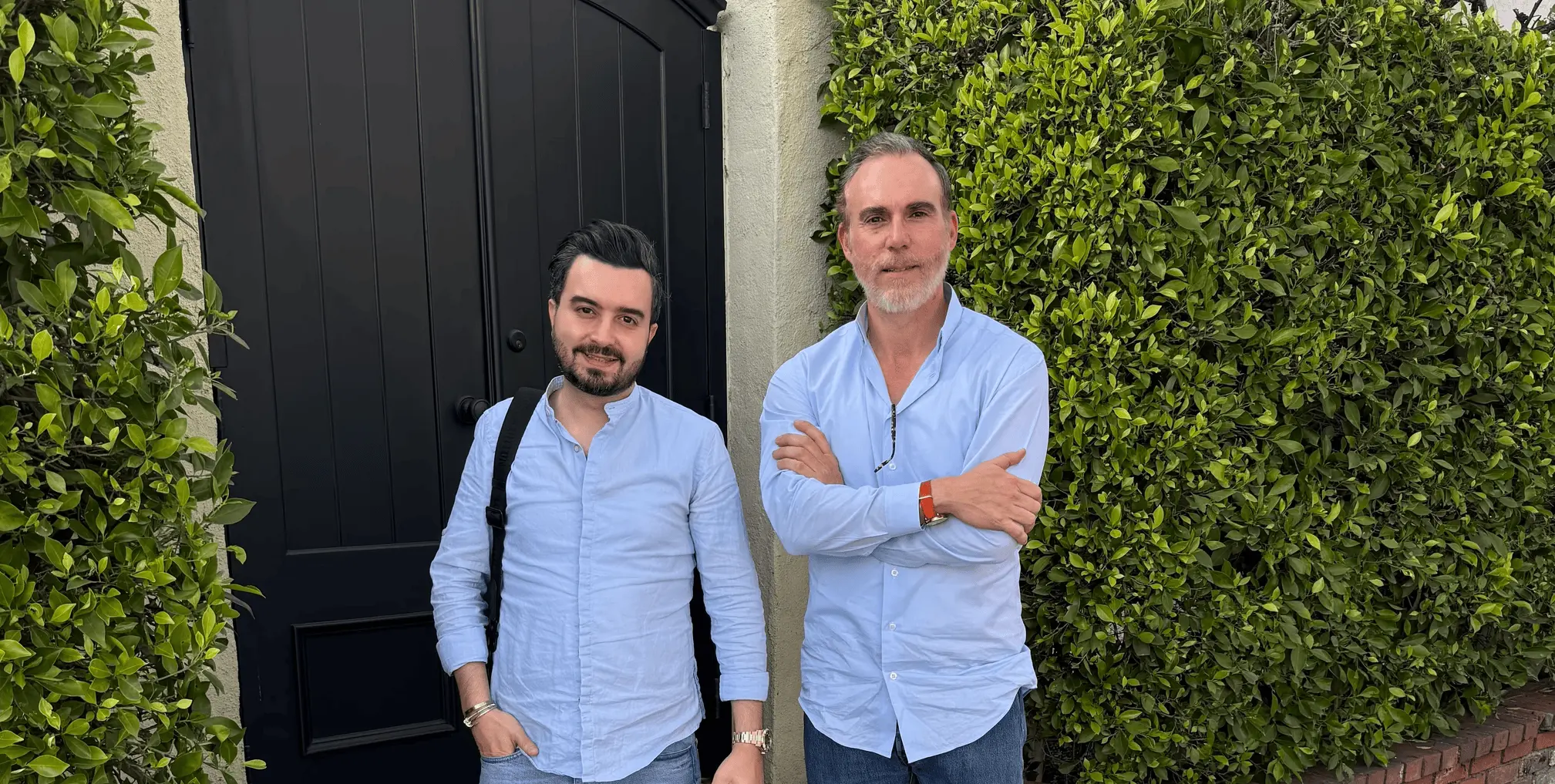Summary:
Law firms on Reddit and across the industry are rethinking how they handle inbound calls. Between expensive human receptionist services like Ruby and Smith.ai, and frustrating per-minute pricing that rewards longer calls, attorneys are questioning whether traditional models still make sense.
Enter CaseGen, an AI-powered legal receptionist and intake platform built by attorneys for attorneys. Its lifelike voice agent, Justina, answers every call 24/7, sounds real, and never misses a lead. Here’s how she’s changing the game for law firms of all sizes.
What Is a Virtual Receptionist for Law Firms?
A virtual receptionist for law firms is a remote professional or AI system that handles incoming phone calls, screens potential clients, routes calls to the right attorney or paralegal, and ensures no lead ever hits voicemail. For solo, small, and mid-sized firms, this is a lifeline, giving you the professional presence of a full-time front desk without the overhead.
Typical tasks include answering and transferring calls, screening for new clients versus existing ones, scheduling consultations, gathering caller information, routing calls to the right person, and managing overflow or after-hours calls.
In short, a virtual receptionist is your law firm’s first impression, the voice that builds trust with clients before you ever get on the line.
Human-Outsourced vs. AI Receptionists: A Changing Landscape
On Reddit’s r/LawFirm, lawyers shared mixed feelings about human virtual receptionist services. Some praise the professionalism, others find them inefficient or overpriced.
One user wrote:
“We use Ruby. We get about 500 inbound calls per month. It costs about $700/month depending on volume.”
Another added:
“If I called a law firm and was sent to a virtual receptionist, I’d call another law firm. I think it’s best to have actual people who are engaged in what’s going on.”
A third, however, shared a different view:
“I’ve been using an AI-powered receptionist to handle after-hours calls and follow-ups. It’s been super helpful, 70% cheaper than Ruby or Smith.”
The thread reflects what many lawyers feel: traditional services are expensive, inconsistent, and sometimes incentivized to waste time.
Many per-minute billing services charge in increments, often rounding up, so a simple call to collect a name and email might cost you two minutes of “talk time.” The longer the call, the more they make. That’s the opposite of efficiency.
Why AI Is Changing the Way Law Firms Think About Receptionists
AI receptionists like Justina by CaseGen solve the biggest complaints attorneys have about human-outsourced options. Traditional services frequently miss after-hours calls or rely on generic scripts that don’t align with a firm’s workflow. In contrast, Justina is available 24/7, speaks multiple languages, and never gets tired or distracted. While human receptionists vary in tone and accuracy, AI maintains a perfectly consistent, professional demeanor on every call.
Cost is another major differentiator. Traditional receptionist companies often charge per minute, making them expensive for firms with high call volumes. CaseGen’s pricing depends on total call volume, not duration, so you’re never penalized for long conversations. And because Justina is trained specifically for legal workflows, she knows how to recognize the difference between a new lead, an existing client, or a solicitor, ensuring that each call is handled correctly from the start.
Unlike many human call centers that record and analyze your conversations for “training purposes,” CaseGen never trains on client data. Every interaction remains confidential and encrypted, aligning with the ethical standards attorneys are required to follow.
Receptionist vs. Intake: Understanding the Difference
Many law firms confuse receptionist duties with intake, but they’re not the same, and understanding the difference can dramatically improve your client experience.
The receptionist serves as the first point of contact. Their role is to greet the caller, determine the nature of the inquiry, and route it appropriately. They ensure that every call is answered, that potential new clients are not lost to voicemail, and that messages are accurately delivered to attorneys or paralegals.
The intake process, on the other hand, happens once a potential client has been identified. Intake involves gathering case-specific details, confirming eligibility, checking for conflicts, and entering the data into the firm’s CRM or case management system.
CaseGen bridges both worlds seamlessly. Justina, the AI receptionist, answers and triages every inbound call. Once she identifies a potential case, she can hand it off to Justin, the AI follow-up agent who ensures clients complete intake forms or sign agreements. Later, Maya, the medical coordination agent, can follow up on appointments and treatment updates. Together, these AI agents mimic a full in-house team, without the cost, turnover, or training time.
Why Law Firms Are Switching to Virtual Receptionists
From Reddit threads to real-world law offices, attorneys are increasingly ditching in-house or outsourced human receptionists for AI-driven ones.
1. Never Miss a Lead
A missed call can mean a lost client. Studies show that more than 70% of people who reach voicemail move on to the next firm. Justina ensures every call is answered, even at midnight or on holidays, so your firm never loses an opportunity.
2. Significant Cost Savings
Traditional services like Ruby Receptionists, Smith.ai, and Back Office Betties typically charge between $600 and $1,200 per month for moderate call volumes, with higher fees for after-hours coverage. AI allows flat-rate pricing based on call tiers instead of time, often saving firms 50% to 70%.
3. Faster, Smarter Calls
Because AI doesn’t bill by the minute, there’s no incentive to prolong conversations. As one Reddit commenter noted, “Just to collect a name and spell it out can take 2 minutes with some of these call centers.”
With Justina, that same process happens in seconds, flawlessly transcribed and routed.
4. 24/7 Coverage Without Burnout
Human receptionists need breaks, vacations, and sleep. Justina doesn’t. Whether you’re in court, meeting clients, or simply taking time off, she ensures your firm stays responsive and professional around the clock.
5. Built for Legal Workflows
Unlike generic virtual receptionist companies, CaseGen was designed exclusively for law firms. That means intelligent call routing for different case types, integration with CRMs like Clio and Filevine, and custom scripting created by real attorneys.
6. Scales With Your Firm
Whether you handle 10 calls a week or hundreds a day, Justina scales effortlessly. As your firm grows, you can add new AI agents, languages, or features, without increasing overhead or retraining staff.
How CaseGen’s AI Receptionist (Justina) Works
When a potential client calls your firm, Justina answers immediately in a warm, natural tone. She determines the caller’s intent, whether they’re a new client, existing client, or third party, and follows your firm’s customized script to handle the situation.
Behind the scenes, advanced voice recognition converts speech to text in real time, while natural-language processing identifies context and urgency. Within seconds, key information such as name, contact number, case type, and date of incident are captured and securely stored.
If a caller needs to be transferred or if the matter is urgent, Justina can escalate the call to your team instantly. Every interaction is logged, transcribed, and available for review, ensuring nothing slips through the cracks.
Pricing and Competitor Comparison
On Reddit, many attorneys referenced traditional providers such as Ruby Receptionists, Smith.ai, and Back Office Betties. Ruby’s pricing, for instance, averages around $700 per month for about 500 calls, with costs fluctuating by minute. Smith.ai and Betties fall within a similar range, typically between $600 and $1,200 per month, depending on volume and after-hours coverage.
These companies often charge per minute, a model that incentivizes agents to drag out calls. Attorneys have reported that even a simple task like spelling a client’s name can stretch to two minutes. The longer the call, the higher the fee.
CaseGen’s AI receptionist eliminates that problem entirely. Pricing is based on total call volume, not time spent. The faster Justina completes each call, the more value your firm receives. Instead of worrying about incremental costs, you can focus on client satisfaction and lead conversion.
It’s not just cheaper, it’s smarter business.
Security, Compliance, and Data Protection
CaseGen was designed with confidentiality in mind. While it’s not yet HIPAA-certified, it adheres to strict privacy standards that align with the expectations of legal professionals. Every conversation is encrypted in transit and at rest, and data remains exclusively under your firm’s control.
Importantly, CaseGen never trains on your data. Many AI companies improve their models by reusing customer conversations, but CaseGen does not. This ensures complete privacy and compliance with attorney-client confidentiality obligations.
For firms that handle sensitive or regulated information, that peace of mind is invaluable.
Final Thoughts: The Future of Legal Reception Is AI
Discussions among attorneys on Reddit make one thing clear, the legal industry is ready for change. Traditional virtual receptionist services are costly, inconsistent, and slow. Clients expect instant, professional communication, and law firms can’t afford to miss a call or pay for inefficiency.
Justina by CaseGen offers a new standard, always available, always accurate, always professional. With a practicing attorney as a co-founder, CaseGen understands the unique demands of law firms and builds technology that reflects real-world legal workflows.
This isn’t just a virtual receptionist, it’s your firm’s intelligent front desk, designed to help you capture more leads, close more clients, and scale without hiring more people.
📞 Ready to Transform Your Firm’s Front Desk?
Experience the future of legal reception today. Schedule a demo at casegen.ai/contact and discover why the best virtual receptionist for law firms isn’t human, it’s smarter.
FAQs: Virtual Receptionists for Law Firms
What tasks can a virtual receptionist handle for my law firm?
A virtual receptionist can answer calls, screen clients, schedule consultations, forward urgent messages, and manage overflow or after-hours inquiries. Justina does all of this 24/7, with complete accuracy and no downtime.
What’s the difference between a receptionist and intake?
The receptionist handles call answering and triage, while intake collects case details and qualifies the client. CaseGen automates both processes using different AI agents.
Do AI receptionists sound robotic?
Not anymore. Justina speaks with warmth and nuance, sounding completely human to most callers. Many firms report clients never realize she’s AI, only that she’s impressively efficient.
How much does a virtual receptionist cost?
Human-staffed services like Ruby or Smith usually range from $600 to $1,200 per month. CaseGen offers flat-rate pricing based on total call volume, not per-minute billing, often cutting costs by more than half.
What about bilingual calls?
Justina supports both English and Spanish, ensuring your firm can serve a wider client base without hiring additional staff.
Is my data secure?
Yes. CaseGen encrypts all data, stores it securely, and never trains on your client information.
Does CaseGen integrate with my case management system?
Yes. CaseGen connects seamlessly with major CRMs and legal management tools such as Clio, Filevine, and Lawcus.
Can I test it before subscribing?
Absolutely. CaseGen offers demos so you can experience how Justina handles real calls for your firm before going live.






